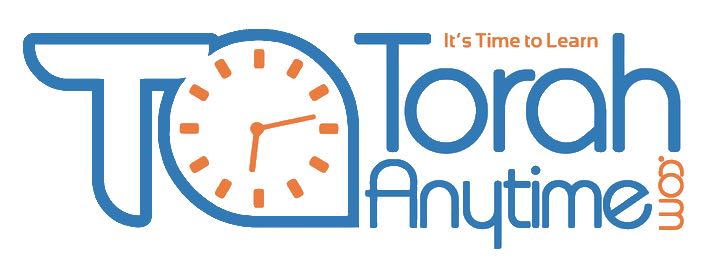The Four Sons Part 4 - the Tam
/“What does the simple son say?
You should tell him: With a strong hand God took us out of Egypt, from the house of slavery”
The tam asks a nice straightforward question - "What's this?" He lacks the analytical powers of the chacham to discern the difference between עדות חוקים ומשפטים. He doesn't challenge or mock like the rasha. He observes with a simplistic innocence and asks "What's this?"
Shlomo HaMelech tells us ישמע חכם ויוסף לקח , a chacham hears what you're saying and adds to it. However, it does not say ויוסף בינה; he does not add understanding; he does not develop new insights based on it. Rather, the chacham has the ability to read deeper into what you taught him. His process of questioning and learning is an ongoing experience. The word tam, on the other hand, implies a certain degree of completion and perfection. What you tell him he accepts unquestionably. The tam won't be doing a lot of manipulation with the information to discover more ideas. He's happy with what he has heard.
"What's this?" he asks. We can see the simplicity of the question and answer him accordingly. Consider this:
Earlier, when asked the Mah Nishtana, we answered with Avadim Hayinu - a 54-word paragraph.
However, when the tam asks, we answer concisely: "With a strong hand - ביד חזקה! G-d took us out of Egypt".
'!ביד חזקה' we tell him, leaving out the phrase "ובזרוע נטויה" , "with an outstretched arm." Perhaps that will be too much for him to grasp. "יוציאנו ה", "Hashem took us out," we leave out the word "Elokim," "our G-d," again presenting the minimum. "ממצרים מבית עבדים" , "from Egypt, from the house of slavery" without including the idea of פרעה , an evil ruler in addition to an evil country. What we have given the tam in response to his simple question is עבדים היינו in an vastly easier form.
Say it Simple
One of the great challenges in education is to discover how to give across ideas, even complicated ideas, in a simple way. This is particularly difficult for a people who extol intellectual achievement. The greatest insult a Jew can give someone is not that they are a rasha. Saying that someone is a rasha implies that there was at least some intellectual achievement. Last week we discussed that this is the reason the rasha is listed second. We know that if we can just turn him around, then he will be a chacham. Rather the worst thing we can say about a person is that he is an am haaretz, an ignoramus.
“One of the great challenges in education is how to give across complicated ideas in a simple way. ”
This can lead to a situation where a child who was not gifted with an outstanding intellect can be made to feel insecure, or worse. Sometimes they can feel that they don't belong in yeshiva at all and by extension that they don't fit in as a member of the frum community. How many times have we seen the tam who struggles unsuccessfully to keep up with the material in shiur. Failing at academics he can be seen as a troubled kid, "out of it," unconcerned. How can it be that he can't get this, his rebbe thinks. If he tried harder, if he put in more time, if he didn't fool around so much, then he would excel.
The Simple Students
Perhaps what is needed are schools geared to meet the needs of the tam. Where there are rebbeim like the Gemara's Rav Praida who reviewed the same piece with a student 400 times until he understood. Try that in a classroom and see what happens. Perhaps in a school or a program that worked with average students, those who simply can't produce "A" work, there would be a lot more possibility to meet their needs.
Of course I know that I'm kidding myself. Some years ago I had to confront a difficult situation. I had a child whom everyone said was gifted. Her playgroup, Pre 1A and kindergarten teachers all urged us to move the child up. Since she was so bright, if she wouldn't be challenged she would become bored and be plagued with the problems that boredom brings to bright children. The situation seemed relatively simple to me - everyone agreed she should move up. As it was, she only missed the deadline for first grade by eleven days. Surely this would be a simple matter.
When I called the Education Ministry, they said first they needed a psychological evaluation. Reasonable enough. "So when should I bring my daughter?" I asked. "Oh, not your daughter, this is for you and your wife" she explained. Only after that would our daughter begin to undergo her three psychological evaluation sessions. This seemed to me to be a little unreasonable until they explained to me that Israel is a Jewish country. And every Jewish child is a genius. Parents are intent to constantly prove that their children are exceptional intellects.
“The Rebbe tried to explain that his son would never be able to keep up, and he will become overwhelmed and depressed.”
There was a mother in Canada who complained to me that the schools are elitist. "Why can't they appreciate a "B" or "C" student!?", she demanded. The problem, though, is not with the schools with high academic expectations. The problem is that parents want their "B" or "C" students in schools and classes that are clearly beyond their capabilities. Chas VaShalom that my student should be average. My sons' eighth grade Rebbe told me a story of a good "B" student whose father was using protektzia (inside connections) to get him into an "A" school. The Rebbe tried to explain that his son would never be able to keep up, he will become overwhelmed and depressed. Instead the Rebbe suggested a number of excellent yeshiva ketanas for his son. "But" the father said, wringing his hands, "how will I ever face my friends?"
The Mesillas Yesharim in פרק י"ג explains the level of p'rishus as separating yourself from things that are permissible. If the right thing to do is to avoid these things, he asks, then why didn't the chachamim forbid them? There are many things that are Ossur MiD'rabanan. Why didn't the Sages forbid these things as well? He answers with a powerful idea - because there are different levels in a nation, and not everyone can maintain the same high standards. The chachamim only forbade those things that were possible for the majority of klal Yisroel to keep, not only the exceptions.
The Pashuta Yid
“He answers with a powerful idea - because there are different levels in a nation, and not everyone can maintain the same high standards”
Can parents appreciate a tam? Can we delight in a child who struggles to understand and teach him on his level? The simple pious Jew who has kept the Jewish people alive through all these long centuries? One Simchas Torah in Vilna, there was an unlearned Jew dancing with tremendous fervor. The Vilna Gaon asked him, "Tell me, what are you celebrating? You don't know any Torah." The man looked at him and said "I'm celebrating that there are people like the Vilna Gaon who know Torah."
Can we learn to respect the little "pashata Yid"? Once, Rav Nachman Bulman שליט׳א was encouraging me to take on a project, I asked: "What do you want from me? I'm just a pashata yid!" He got upset at me (in that loving way that only Rav Bulman can):
"A pashata yid! Do you know how hard it is to be a pashata yid?!"
At the Seder, in our homes, and in our schools there will be many students who ask simple questions. Who may never attain deep understanding. When they come to us, let's be prepared to answer them on their level. And let us learn how to appreciate a pashata Yid.
[A version of this article originally appeared on Chazaq.org]
Illustrations adapted from the Katz Haggadah © 2017 Rabbi Baruch Chait & Gadi Pollack. May not be reproduced in any form. Used with permission.
The Four Sons Series
This series is available as an ebook










Sponsored by R.G.
Your podcasts bring happiness to my life. when I was going through a difficult time, I would tell everyone that one of the only things that made me smile was this podcast. Don't stop as you are changing my life and many others.
May G-D bless you and the work that you do.